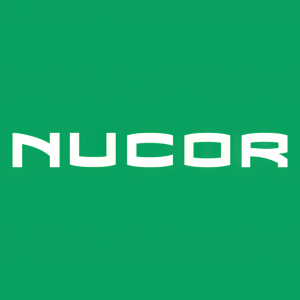Google, Microsoft, and Nucor announce a new initiative to aggregate demand to scale the adoption of advanced clean electricity technologies
- None.
- None.
Insights
The collaboration between Google LLC, Microsoft Corporation and Nucor Corporation represents a significant strategic alliance within the energy sector, particularly in the advanced clean electricity space. The focus on developing new business models for First-Of-A-Kind (FOAK) and early commercial projects is a forward-looking initiative that seeks to address the current financing and risk challenges associated with deploying innovative energy technologies.
From an energy market perspective, this partnership has the potential to create a ripple effect that could boost investor confidence in the sector. By aggregating demand, these companies are not only increasing the viability of projects but also potentially lowering the cost of technology through scale. This could lead to a more competitive pricing landscape for clean energy solutions, which is essential for accelerating the transition away from fossil fuels.
Moreover, the development of new tariff structures in collaboration with energy providers could lead to regulatory changes that further support the growth of the sector. The shared learnings and roadmap from their pilot projects could serve as a blueprint for other companies, suggesting a potential industry-wide shift towards cleaner energy procurement practices.
The announcement by Google, Microsoft and Nucor to jointly develop and support advanced clean electricity technologies could have a noteworthy impact on the financial health of companies within the clean energy supply chain. By committing to offtake agreements, these tech giants are providing a stable demand outlook for emerging technologies, which is a key factor in securing project financing.
Their approach to reducing project-specific risks through demand pooling could lead to a reduction in the cost of capital for developers, which is important for the economics of capital-intensive energy projects. This collaborative effort might also attract more institutional investors to the sector, looking for opportunities with a balance of innovation and reduced risk, potentially leading to an increase in sector-specific funds and investment vehicles.
In the long term, the success of such initiatives could drive down technology costs and lead to more competitive renewable energy sources, potentially impacting the stock performance of companies involved in these technologies and those reliant on traditional energy sources.
The initiative by Google, Microsoft and Nucor to advance clean electricity technologies is a significant step towards sustainable business practices. By focusing on technologies such as advanced nuclear, geothermal, clean hydrogen and long-duration energy storage, these companies are directly contributing to the decarbonization of the grid, which is a critical component of global climate change mitigation efforts.
Their pilot project delivery framework, which emphasizes policy influence and ecosystem improvements, suggests a holistic approach to sustainability that goes beyond their immediate business needs. This could set a precedent for how large corporations can leverage their buying power to drive environmental change while still addressing their energy requirements.
The transparency and scalability of their project delivery framework could encourage other companies to adopt similar models, potentially leading to industry-wide sustainability standards and practices. This proactive approach to sustainability can also enhance the corporate reputation of the involved companies, which is increasingly important to consumers, investors and regulators.
The companies will work to address barriers to early-stage commercial project deployment.
According to the International Energy Agency (IEA), firm, dispatchable clean electricity technologies and advanced energy storage systems are needed to cost-effectively decarbonize grids and help the world meet its growing electricity demand with carbon-free energy sources. These advanced clean electricity technologies can fill gaps in wind and solar production and support grid reliability – needs that today are still being met by fossil fuel generation.
Yet, these advanced clean electricity technologies face challenges, in part because the novelty and risk of early projects make it difficult to secure the financing they need. By developing new commercial structures and aggregating demand from three of the world's largest energy buyers, this approach aims to reduce the risks for utilities and developers considering early commercial projects and enable the investments that are needed - ultimately helping to bring these projects online by the early 2030s and reducing technology costs through repeated deployment.
The companies will initially focus on proving out the demand aggregation and procurement model through advanced technology pilot projects in
In addition to supporting innovative technologies that can help decarbonize electricity systems worldwide, this demand aggregation model will bring clear benefits to large energy buyers. Pooling demand enables buyers to offtake larger volumes of carbon-free electricity from a portfolio of plants, reducing project-specific development risk, and enables procurement efficiencies and shared learnings.
To ensure that the project delivery framework that they develop is transparent and scalable, Google, Microsoft, and Nucor will share their lessons learned and the roadmap from their first pilot projects, and encourage other companies to consider how they can also support advanced clean electricity projects.
About
Google's mission is to organize the world's information and make it universally accessible and useful. Through products and platforms like Search, Maps, Gmail, Android, Google Play, Google Cloud, Chrome and YouTube, Google plays a meaningful role in the daily lives of billions of people and has become one of the most widely known companies in the world. Google is a subsidiary of Alphabet Inc.
Microsoft (Nasdaq "MSFT" @microsoft) enables digital transformation for the era of an intelligent cloud and an intelligent edge. Its mission is to empower every person and every organization on the planet to achieve more.
Nucor Corporation is the largest steel and steel products producer in
![]() View original content:https://www.prnewswire.com/news-releases/google-microsoft-and-nucor-announce-a-new-initiative-to-aggregate-demand-to-scale-the-adoption-of-advanced-clean-electricity-technologies-302092463.html
View original content:https://www.prnewswire.com/news-releases/google-microsoft-and-nucor-announce-a-new-initiative-to-aggregate-demand-to-scale-the-adoption-of-advanced-clean-electricity-technologies-302092463.html
SOURCE Nucor Corporation







